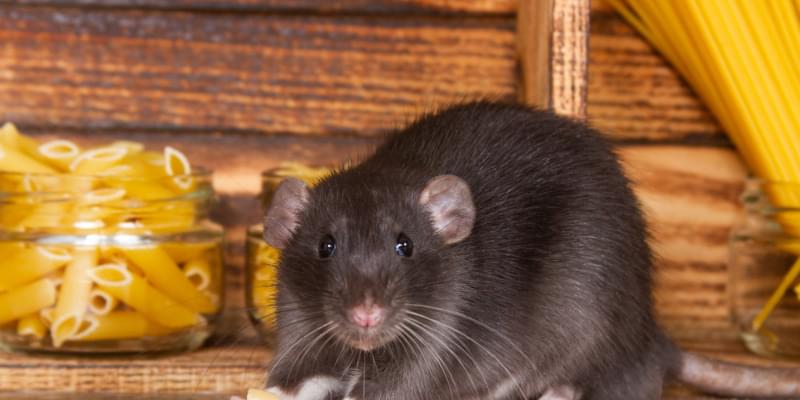Rodents, such as mice and rats, can be an immense nuisance and a dangerous health hazard if they find their way into your home. They can contaminate food, damage property, and transmit diseases to humans and pets. To keep these pests out of your home, it is crucial to take proactive steps to prevent their entry and to seal up any potential entry points.
Clean Your Space
One of the most effective ways to prevent rodent infestations is to keep your home and property clean and well-maintained. Rodents are attracted to clutter and debris, so it is vital to keep your home free of clutter and to store any food or garbage properly. Trash cans should be kept sealed and emptied regularly, and any outdoor compost bins should be kept covered. In addition, it is a good idea to keep your yard free of debris and overgrown vegetation, as these can provide hiding places and nesting sites for rodents.
Seal Up Entry Points
Another critical step in preventing rodent infestations is to seal up any potential entry points into your home. Rodents can squeeze through tiny gaps, so it is essential to inspect the exterior of your home for any cracks or openings that could provide access. Common entry points include gaps around doors and windows, holes in the foundation, and openings around pipes and wires. To seal up these openings, you can use materials such as caulk, foam sealant, or steel wool. It is also a good idea to install door sweeps or weatherstripping to help seal any gaps around doors.
Use Rodent-Proof Materials
A third effective way to prevent rodent infestations is to use rodent-proofing materials such as mesh or screening. These materials can be used to cover ventilation openings, chimneys, and other potential entry points to prevent rodents from gaining access to your home. In addition, you can use rodent-proof storage containers to keep food and other items safe from rodent contamination.
More Aggressive Measures
If you already have a rodent problem, it may be necessary to take more aggressive measures to get rid of the pests. Traps and baits can effectively control rodent populations, but it is important to use these products responsibly and according to the manufacturer's instructions. If you need help with how to use these products safely, it is a good idea to seek the advice of a professional pest control company.
- Traps Trapping rodents is an effective way to get rid of pests in your home or business. Trapping rodents can be done with a variety of different traps, all designed to capture and hold the rodent until it can be released outdoors. However, trapping rodents can be tricky – if you don't use the right trap, you may not have any success. The most common type of trap is a live-catch trap; these are typically made out of metal or plastic and come with bait holders that attract the rodent inside. They must be checked regularly so that you can remove caught animals immediately, as they will die in these traps if left for too long without food or water. Additionally, some states have regulations on how long mice can legally remain in traps before they must be released.
- Baits Rodents such as rats, mice, and voles can be a nuisance for home and business owners alike. Baiting involves placing bait in areas where rodents frequent and is a great way to rid your space of rodents without having to resort to more extreme measures. Traditional baits include poisons, which work by slowly increasing the amount that is placed around an area until the rodent population has been sufficiently reduced. Natural baits such as nuts, fruits, and grains are also popular choices because they provide food sources that attract rodents while also acting as deterrents when combined with other materials such as peppermint or garlic powder.
In conclusion, prevention is key to keeping your home rodent-free! However, if you already have a rodent problem, calling upon experts such as Trio Pest Control can be the final way to protect your home from these unwanted pests. If you find you’re in need of a professional rodent control company, Trio is the one for the job.
